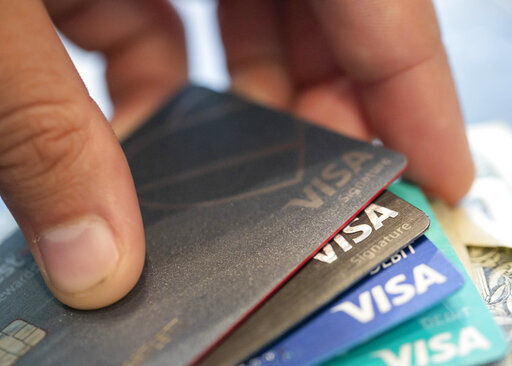As you lay the groundwork for 2021 financial resolutions, take inventory of your credit cards to see if they’re in line with your goals and priorities.
With the pandemic upending spending patterns, possibly for the foreseeable future, an audit of the benefits and costs of your cards can reveal which ones are getting the job done and saving you money, which ones are a drag on your finances — and what features you might want to look for in a new card. Here are some credit card features to prioritize.
A JUSTIFIABLE ANNUAL FEE
An annual fee is worth paying on a credit card only if the rewards and perks more than offset the cost. For Sahirenys Pierce, a California-based content creator at the Poised lifestyle blog, the benefits far outweigh her cash-back credit card’s $95 annual fee.
“We had an extra $500 for our Christmas gifts” last year thanks to the cash back she earned, she said.
By contrast, a card whose value comes in the form of airline miles or travel perks might not come close to paying for itself if you’ve stopped traveling.
If the card’s incentives aren’t making up for the fee, ask your issuer about downgrading your account to a card with no annual fee. It’s better than closing the account because your original line of credit remains open, which can benefit your credit scores.
REWARDS SUITED FOR THE TIMES
The incentives on many credit cards don’t necessarily match the shifts in spending that accompanied the pandemic. Bonus points on travel, for example, became less valuable than higher rewards on groceries, streaming services and restaurant takeout and delivery.
“I haven’t taken out my American Airlines Citi card for a long time because earning the points is really a different proposition right now, and that’s a top level concern when it comes to picking the card that you’re going to use,” said Brian Riley, director of Mercator Advisory Group’s credit advisory service. The company is an independent research and advisory services firm for the payments and banking industry.
Look for credit card incentives that best reward your spending in the current environment. Multiple cards in 2020 altered their rewards structures temporarily or even permanently to remain relevant and useful.
For Pierce, her credit card was already pulling its weight in the categories that mattered most.
“One thing that made us feel a bit better — not 100% better — but a little bit better was that the credit card we had (a year prior to this pandemic happening) was really focused on our necessities, so our groceries, our gas, our streaming services,” Pierce said.
FLEXIBLE REDEMPTIONS
Flexible reward redemption options can pad your budget with a statement credit that lowers your balance or with cash deposited directly in your bank account. Pierce appreciates that she can simply get cash back and doesn’t have to try to redeem points for something like flights or gift cards.
“Having that 6% cash back was much more beneficial,” she said.
During the pandemic, some popular travel credit cards have temporarily allowed point redemptions for statement credit against purchases at places like grocery stores, restaurants and home improvement stores. Explore your cards for redemption changes.
PERKS FOR ONLINE SHOPPING
As social distancing emptied out brick-and-mortar stores, online shopping became even more of a lifeline. And that may be a permanent state of affairs: The Mastercard Economic Institute estimates that 20% to 30% of the global COVID-19-related shift to e-commerce will remain intact.
Some credit cards hand out bonus rewards specifically for online shopping. Credit card deals platforms from issuers like Chase, American Express and Capital One offer extra cash back or points for shopping with specific retailers, some of which are online-only. And your card might have built-in benefits that add convenience and security to online purchases, such as return protections, which refund a purchase when a retailer doesn’t or extended warranty protection.
CELL PHONE PROTECTION
Several credit cards offer free cell phone protection when you pay your monthly wireless bill with the card. This benefit could cover a stolen or damaged phone up to several hundred dollars per claim, depending on the program’s terms. The coverage from your card can spare you the cost of paying for a device protection plan through your provider. Across multiple devices month after month, the savings can really add up.
TRIP CANCELLATION INSURANCE
Found on some travel cards, this benefit reimburses you up to a certain amount when an unexpected qualifying circumstance like COVID-19 derails your travel plans. To be covered, book your vacation with the card that offers the benefit. Your situation also must qualify under the benefit’s terms.
RENTAL CAR COVERAGE
This benefit covers a rental car for damage or theft when the rental is booked with the card. It typically kicks in after your personal auto insurance policy pays out, meaning it may reimburse your deductible and other out-of-pocket costs. Getting coverage from your card can allow you to decline the rental car company’s collision coverage. If that coverage costs, say, $15 per day, that’s more than $100 saved over a weeklong vacation.
This article was provided to The Associated Press by the personal finance website NerdWallet. Melissa Lambarena is a writer at NerdWallet. Email: mlambarena@nerdwallet.com. Twitter: @lissalambarena.


